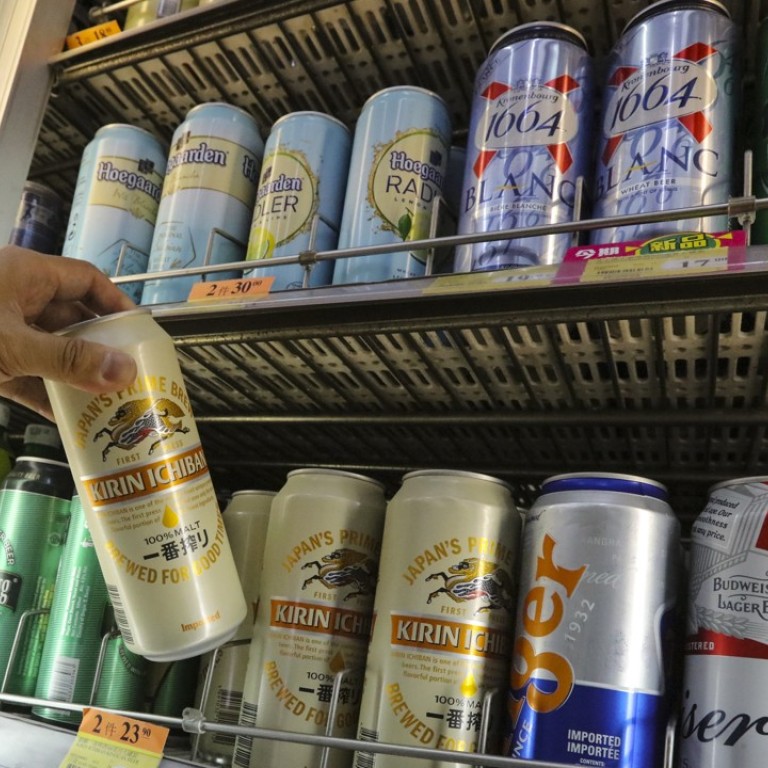
New liquor law has to hit offenders hard
- Loophole that allows those under 18 to buy alcohol from retail outlets will close, and for the sake of youngsters’ health there is need for strict enforcement
A loophole in Hong Kong ‘s liquor laws will be closed from November 30, when it will become illegal for any outlet to sell alcohol to those under 18. The ban that applies to bars, clubs and other licensed venues may accurately reflect community standards and expectations, but it has not applied to supermarkets, convenience stores, vending machines and public events.
The sales policies of these avenues depend on owners, managers and organisers. If they sell to under-18s the law allows them to claim they have done nothing wrong. Given an abundance of witness accounts and anecdotal evidence that a sense of responsibility is often lacking, the new law, finally passed by the Legislative Council last February, has to be seen as far better late than never.
Alcohol outlets including internet sites, SMS or social networking apps will have to display signs about the new law and traders can check identity cards for confirmation of age. Those who sell or supply alcohol to under-18s face a fine of up to HK$50,000. Stores that do not display bilingual signs face fines of up to HK$25,000.
The new law takes effect just over two years since then health minister Dr Ko Wing-man said the government was investigating how to regulate the sale of alcohol to youngsters in unlicensed stores. He was prompted by surveys showing underage drinkers were consuming more and growing in number, heightening fears of well documented health and social consequences, including addiction. One by Polytechnic University’s school of nursing found that 38 per cent of 840 Form Three students from six secondary schools had drinking experience dating back on average to 11 years of age. Another by the Department of Health of at least 70,000 primary and secondary students found that 3.4 per cent in Primary Four and 12 per cent in Form Six had at least one experience of binge drinking. The risk of health and addiction issues in the future is self-evident.
The effectiveness of the new law ultimately depends on enforcement. The renamed Tobacco and Alcohol Control Office has been boosted by the hiring of extra inspectors, but they remain thin on the ground. A proactive approach to policing, including exemplary prosecutions, is needed for a deterrent effect.

